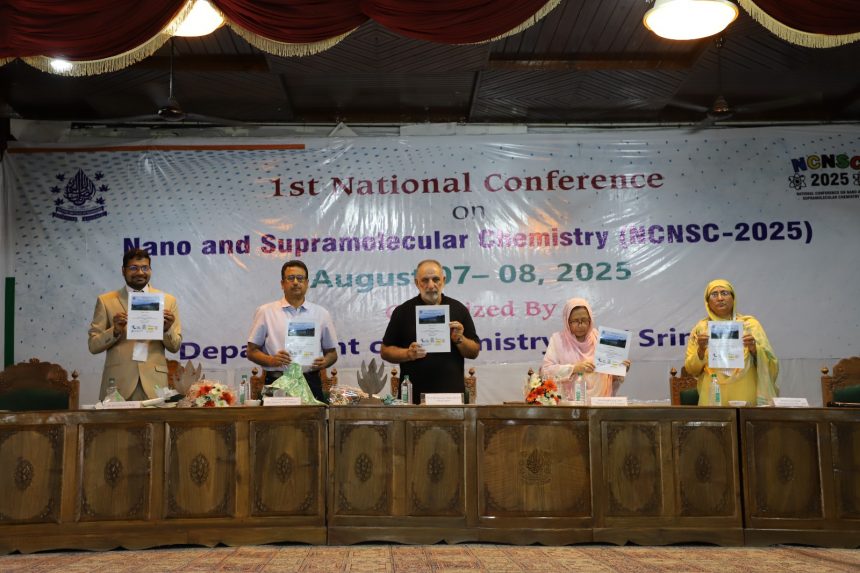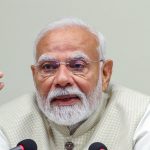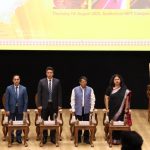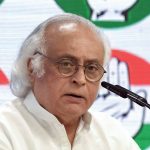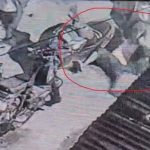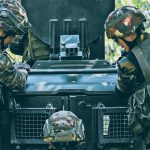The 1st National Conference on Nano and Supramolecular Chemistry (NCNSC-2025) commenced on Thursday at the National Institute of Technology (NIT) Srinagar.
The two-day event is being organized by the Department of Chemistry, with a focus on cutting-edge developments in nanochemistry and supramolecular sciences.
Director NIT Srinagar, Prof. Binod Kumar Kanaujia, is the Chief Patron of the conference, while Prof. Atikur Rehman, Registrar of the Institute, and Prof. Roohie Naaz Mir, Dean Research & Consultancy (R&C), are serving as Patrons. Prof. Kowsar Majid, Head of the Department of Chemistry, is Chairperson of the conference, while Dr. Jigneshkumar V. Rohit and Dr. Ravi Kumar are the Organizing Secretaries.
The inaugural session was presided over by Prof. Mohammad Akbar Khuroo, former professor at Department of Chemistry, University of Kashmir, served as the Chief Guest on the occasion.
Addressing the gathering virtually, Director NIT Srinagar, Prof. Binod Kumar Kanaujia, welcomed all dignitaries, researchers, and students participating in the conference. He expressed his delight that the Department of Chemistry was hosting a national-level conference on such a relevant theme.
“Nanoscience helps us understand materials at the nanoscale, opening possibilities in medicine, materials engineering, and more. I am confident that the rich deliberations and knowledge-sharing from our distinguished speakers will inspire young minds attending this conference,” he said.
Prof. Kanaujia praised the HOD Chemistry, Prof. Kowsar Majid, and her team for organising the conference on a relevant theme. Such conferences are a need of the hour, he added.
Director NIT Srinagar also expressed gratitude to the sponsors for their support.
Speaking on the occasion, Prof. Roohie Naaz Mir, Dean R&C, highlighted the transformative potential of nano-chemistry and supramolecular chemistry in various domains, including medicine, energy, and materials science.
“These fields are revolutionizing targeted drug delivery, energy storage, material development, and smart diagnostics. This conference is a significant step in fostering interdisciplinary collaboration and nurturing innovative research,” she said.
Registrar Prof. Atikur Rehman, in his address, said this conference is more than just a gathering of minds. It is a platform for dialogue, discovery, and direction, a space where groundbreaking ideas will be exchanged, future collaborations will be initiated, and innovations will be sparked, he said.
Prof. Rehman said that the scope of NCNSC-2025 is ambitious and timely. As we navigate the 21st century, the convergence of nanotechnology and supramolecular chemistry is not only reshaping scientific disciplines but also offering practical solutions to societal challenges,” he added.
In his presiding address, Prof. Mohammad Akbar Khuroo said he has a longstanding association with the institute, recalling the days when NIT Srinagar was known as REC (Regional Engineering College).
“My journey with this department began in the 1980s, under the leadership of Prof. Shakti Rayees. There used to be frequent academic exchanges between the University of Kashmir and REC’s Chemistry Department,” he said.
Emphasizing the conference’s theme, he said that nano and supramolecular chemistry can play a crucial role in overcoming the challenges posed by contemporary medicine.
“Precision-targeted therapies akin to guided missiles with molecular accuracy have the potential to reduce harmful side effects of drugs, particularly in treatments like chemotherapy,” he said.
Prof. Khuroo urged young researchers to pursue science with a mission. This is one of the finest subjects for aspiring scientists. It will be a golden opportunity for young researchers to engage with new ideas and breakthroughs, he added.
He also appreciated the Chemistry department for organising the conference. Under the leadership of Prof Kowsar, the department is excelling in every aspect.
In her inaugural address, HOD Chemistry and Chairperson of the conference, Prof. Kowsar Majid, formally welcomed participants, dignitaries to the two-day national conference.
“We firmly believe that open dialogue and in-depth scientific discussion can help young researchers contribute meaningfully to solving some of the world’s most pressing challenges,” she said.
Prof. Kowsar said this two-day conference serves as a vibrant platform for scholars, professors, and innovators to collaborate and share ideas in the fields of nanochemistry and supramolecular chemistry.
She explained how nano chemistry focuses on designing materials at the atomic and molecular scale, while supramolecular chemistry explores self-assembled molecular systems via non-covalent interactions such as hydrogen bonding, stacking, and host–guest chemistry.
“These two disciplines complement each other, enabling the creation of highly organized, functional nanostructures with wide-ranging applications in catalysis, sensing, energy, and medicine,” Prof. Kowsar added.
HOD MED, Prof. (HAG) M. F. Wani and senior faculty member was felicitated for his special contributions to the growth and excellence of NIT Srinagar. He also shared key insights for budding researchers, emphasizing the importance of curiosity, discipline, and collaborative research.
Prof. Kowsar praised Prof. M.F. Wani as a key pillar of NIT Srinagar’s research ecosystem. Recalling the state of the Institute in 2000, he noted the lack of basic research infrastructure.
She credited former Director Prof.Rajat Gupta for ushering in a golden era of research and highlighted their joint proposal to establish the ₹10-crore Central Research Facility Centre.
Prof. Kowsar also appreciated the continued support of successive Directors, especially Prof. Rakesh Sehgal, in strengthening research. Commending the current Director, Prof. Binod Kumar Kanaujia, she called his leadership at NIT Srinagar, a remarkable example of dedication and vision.
“Beyond CRFC, Prof. Wani was instrumental in establishing the Tribology Research Centre at our Institute. His scholarly contributions include the supervision of over 20 Ph.D. candidates, 25 M.Tech dissertations, and the publication of more than 200 research papers in reputed international journals,’ she added.
Earlier in his welcome address, Dr. Jigneshkumar V. Rohit said that the goal of NCNSC-2025 is to deliberate on recent advancements in nano and supramolecular materials and encourage interdisciplinary collaboration in chemical sciences.
A formal vote of thanks was presented by Dr. Ravi Kumar, who expressed appreciation for the presence of dignitaries, guest speakers, sponsors, and volunteers who made the conference possible.
During the inaugural session, the Conference Abstract Book was officially unveiled, showcasing the wide range of research topics to be discussed throughout the two-day event.
Following the inaugural session, the second session began with the keynote lecture by Prof. Rajnish Misra from the Department of Chemistry, IIT Indore, who spoke on “Mechanofluorochromism of Phenothiazine Derivatives,” focusing on stimuli-responsive materials.
The first invited talk session, chaired by Prof. Saiqa Ikram of Jamia Millia Islamia, featured Dr. Hirakendu Basu from BARC Mumbai, who presented his work on “Development of 2D photothermal nanostructures for integrated solar powered water purification, energy harvesting and disinfection.
The second invited talk was delivered by Dr Raghu Chitta, Dept. Chemistry, NIT Warangal, Telangana. He presented his talk on ‘Unveiling the photophysical events of Bis and Tetra-Pyrrolic Light Harvesting systems: From design to applications.
In the second session, Dr Dar Aijaz Ahmad from Deptt. of Chemistry, University of Kashmir, discussed “Optical property regulation through polymorphism.”
It was followed by another talk by Dr Suriya Rehman from the Institute for Research and Medical Consultation, Iman Abdulrahman Bin Faisal University, Dammam, KSA. She discussed “Biomimetic Nanoparticles against fungal diseases.
The third session was hosted by Dr. Aabid Hussain Shalla from the Department of Chemistry, IUST Awantipora. He discussed advanced hydrogel systems for site-specific colonic therapy, with an emphasis on pectin-based carriers.
Another section, chaired by Prof. Robinna Aman of S.S.J. University, Almora, Uttarakhand, began with Prof. Amrit Pal Toor from Dr. SSB UICET, who spoke on sustainable hybrid solutions for wastewater treatment.
Dr. Zeba Haque from the Department of Chemistry, Jamia Millia Islamia, New Delhi, followed with a talk on graphene oxide pirlindole nanocomposites for visible-light-driven wastewater remediation.
Parallel oral sessions were also held, chaired by Dr. Zeba Haque. Dr. Kiesar Sideeq Bhat from the University of Kashmir presented on flexible nanomaterial-based biochemical sensors, followed by Dr. Nivedita Rana from IIT Roorkee, who discussed porphyrin modulation and photodynamic applications.
Dr. Reyaz Hassan Mir from the University of Kashmir spoke on the phytochemical and antimicrobial profiling of Prunella vulgaris. The final talk was delivered by Dr. Shubhash Chand from SKUAST-Kashmir on the introduction of nanotechnologies in agriculture.
The conference is being attended by Deans, Associate Deans, Heads of Departments, distinguished professors from institutions including IITs, NITs, Jamia Millia Islamia, Panjab University, Chandigarh, IUST, Kashmir University, and other reputed institutions across India.




